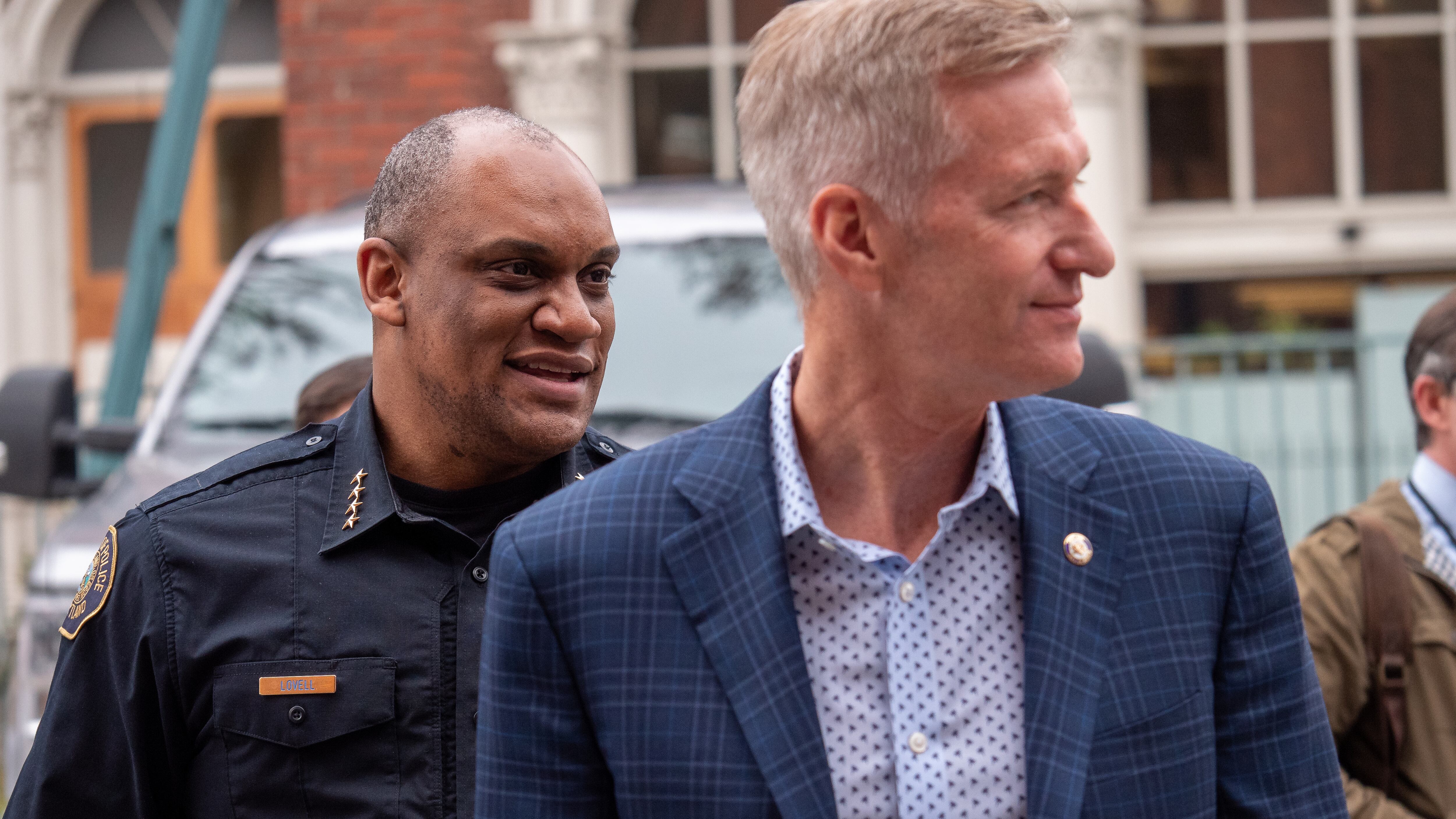In 2019, Multnomah County purchased a former nightclub in the middle of downtown Portland and announced plans to create a day center for people living with mental illness on the streets. The idea was to place the facility close to the homeless population it was designed to serve.
When the facility opened three years later, it was close to something else: downtown Portland’s roving open-air fentanyl market.
Last year, mask-clad fentanyl dealers set up shop in a vacant office complex at Southwest 4th Avenue and Harvey Milk Street. They’ve expanded the operation from there, recently arriving at the doorstep of the new day center on Southwest Park Avenue earlier this year.
Drugs have always been common on Portland’s streets. But the arrival of fentanyl and more powerful meth has made the problem more visible and more deadly.
And nowhere, perhaps, has the inability of government officials to deal with the crisis been more obvious than on the steps of the Behavioral Health Resource Center. Inside, county contractors help people who buy fentanyl to escape its clutches. Outside, the city arrests people who sell it. And, to the annoyance of city officials and downtown power brokers, expressed in text messages and emails obtained by WW, neither strategy seems to be working. The dealers remain.
Jim Mark, CEO of the Melvin Mark brokerage firm, is part owner of the office building across the street from the BHRC. He has watched the encroachment of dealers, and spoke to WW on Thursday morning while viewing live footage from one of his building’s 45 security cameras. A pair of masked men were standing under the eaves of his building, directly across the street from the center.
The situation infuriates him: “You have people who are extremely vulnerable—and then you have these dealers who come to prey on them.”
He’s been telling any government official who will listen to do something about the dealing, which he says is hurting business at nearby hotels and makes his tenants feel unsafe. (Business complaints about the BHRC predate the arrival of the drug market.)
Mark has found a sympathetic ear in Mayor Ted Wheeler.
In a series of text messages sent the morning of Sept. 1 and recently obtained by WW, Wheeler and his top deputies, including then-Police Chief Chuck Lovell, brainstormed what to do.
In the first message, Wheeler says Mark told him that the BHRC “has exploded with shootings and non stop drug dealing.” (The director of the nonprofit that operates the facility, Janie Gullickson, disputes this characterization. “There have been no reported shootings at the BHRC in the past or present that were instigated by people accessing our services,” she said in a statement.)
“Is there any proof that this facility is actually helping anybody?” Wheeler asks his top advisers, including his chief of staff, Bobby Lee. “How on earth could people be receiving meaningful treatment in a facility that has drug dealers outside 24 seven.”
Wheeler wondered if the county couldn’t just move the facility. Lee and Lovell had other ideas.
Lee set up a meeting with Multnomah County Chair Jessica Vega Pederson, saying he was “gathering crime data so we can make the case for dramatic intervention” and had devised a “nuclear legal option.” (Spokesman Cody Bowman would not elaborate on the “nuclear legal option” referred to in texts.)
Lovell confirmed he would send more cops downtown and was “in touch” with Sheriff Nicole Morrisey O’Donnell, presumably to ask for additional assistance from her deputies. The Multnomah County Sheriff’s Office did not immediately respond to a request for comment.
In an email sent late that same evening, Lee alluded to a new “surge” of police presence in the area, with help from a new $1 million pilot program that pays cops double for overtime. He wrote: “The mayor is fully supportive of the plan to have a surged presence and enforcement in the downtown area immediately,” adding that he “encourages the team to use whatever creative means and resources to ensure safety of our downtown.”
It’s not clear if the county is helping with that enforcement effort. It has, however, announced policy changes at the beleaguered Behavioral Health Resource Center, which had to temporarily close earlier this year after reports of drug use and inappropriate behavior by staff.
Related: Drug Use by Security Contractor at County’s Behavioral Health Center Contributed to Closure
The former “drop-in” center is now by appointment only. The long lines to get in, which once stretched out onto the sidewalk, are gone. A letter sent by Pederson earlier this month to the center’s advisory council detailed further changes, which were suggested by center leadership: The facility now drives a van to Old Town to serve coffee and set up appointments with prospective clients, and people who arrive at the facility early can now wait in the courtyard. It’s “generally quieted the surrounding streets,” the letter says.
“We nonetheless continued to experience challenging dynamics with folks gathering around the BHRC in spite of our intention to not allow that,” county health spokeswoman Sarah Dean said in a statement.
Mark says he’s happy so far with the mayor’s interventions—but he wants the county to do more, like send sheriff’s deputies to patrol the block.
The mayor’s spokesman says Wheeler is in frequent touch with county officials. “The BHRC is a consistent concern and discussion item,” he said.
